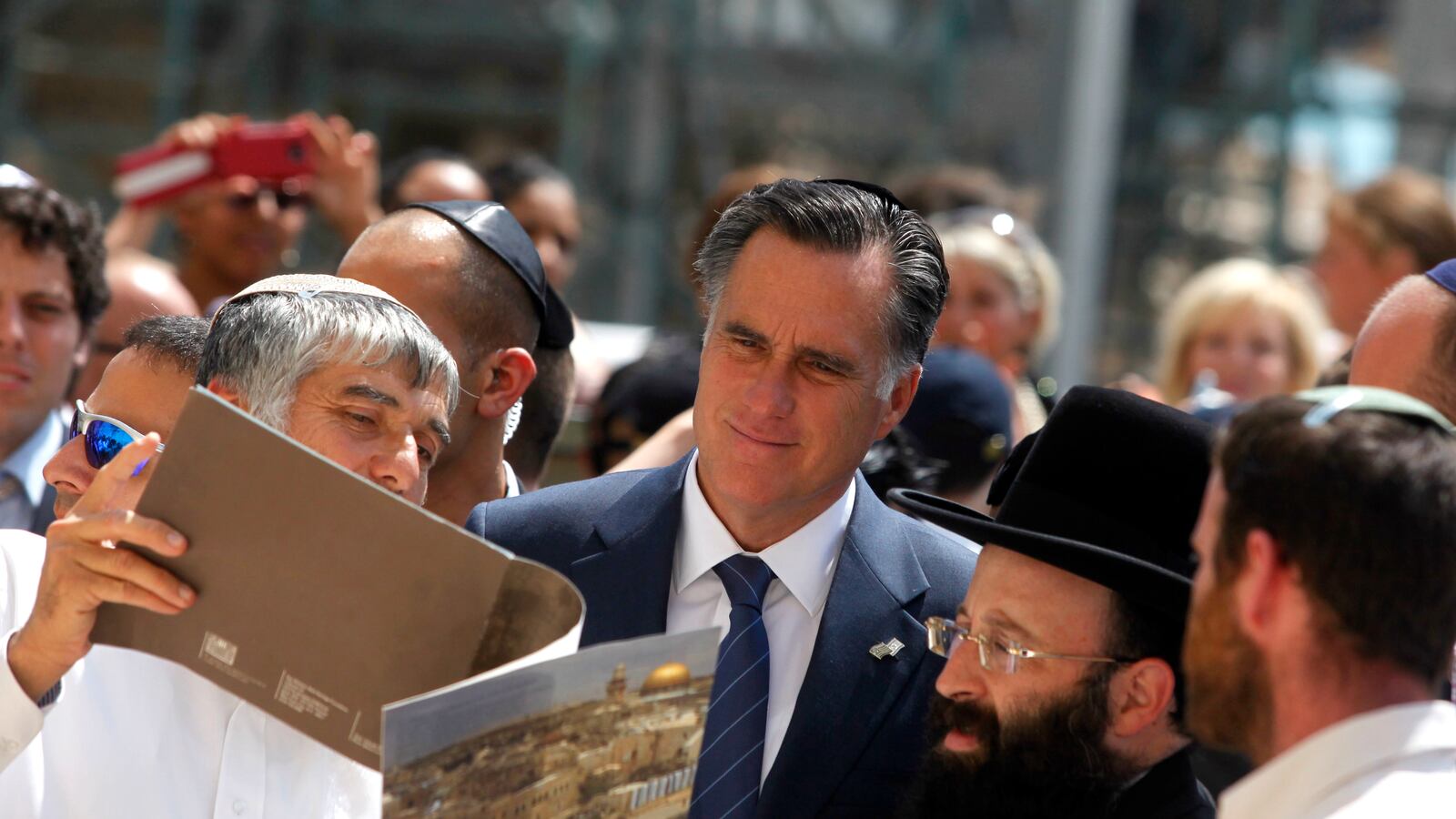He's finally answered the question. On Friday, presidential candidate Mitt Romney quelled two-state solution supporters’ concerns when he declared to the Israeli newspaper Haaretz, “I believe in a two-state solution which suggests there will be two states, including a Jewish state.” With his statement, Romney seemingly declared, once and for all, what kind of solution he envisions for the land between the Jordan River and the Mediterranean.
Or did he? In his much-publicized Jerusalem speech on Sunday, Romney made no mention of Palestinian statehood. His decision to neither meet with Palestinian President Mahmoud Abbas nor visit the West Bank (though he did meet with Prime Minister Salam Fayad) didn’t convince two-staters of his dedication to their cause either. If Romney hopes to be viewed as a fair broker of peace between Israelis and Palestinians—a role he must play if he wants to establish a two-state solution—virtually ignoring Palestinians isn’t a strong first step.

It’s not just Romney’s obvious partisanship that brings his support of a two-state solution into question—it’s his policies too. On this trip Romney declared Jerusalem “Israel’s capital.” Obama made a similar pronouncement when he visited Israel in 2008 and stated, “Jerusalem will be the capital of Israel.” The difference in the two candidates’ statements isn’t just semantics: it’s policy. By declaring Jerusalem to be Israel’s capital, rather than suggesting that it “will be” in the future, Romney mimicked Israel’s unproductive unilateralism by pre-emptively deciding upon a key issue in future two-state negotiations.
Even more perplexing is the question of Romney’s vision for the two-state solution that he claims to support. Last summer, when President Obama made a speech calling for a two-state solution along the 1967 lines, Romney declared that the President’s speech had “thrown Israel under the bus.” If Romney doesn’t believe in establishing independent Israeli and Palestinian states along the widely recognized future borders, what does his idea of two-states look like?
If his vision looks anything like Netanyahu’s (and since he and the Israeli PM “can almost speak in shorthand,” this wouldn’t be so surprising) then Romney’s two-state solution looks more like a state of Jews and Jewish settlements, with isolated Palestinian villages and cities in between, than two states for two people.
And it’s still hard to believe that Romney is truly committed to a two-state solution when he’s being bankrolled by Sheldon Adelson. The Casino magnate, who was seated front and center at Romney’s Jerusalem speech, has called the two-state solution “a stepping stone for the destruction of Israel and the Jewish people.”
Though Adelson has been the most public Romney supporter opposed to two-states, he isn’t the only one. Cindy Costa, the RNC National Committeewoman and a Romney supporter, sponsored a resolution that the RNC passed in January, which effectively called for a full Israeli annexation of the West Bank and a one-state solution.
So, the question remains: does Romney feel a two-state solution in his kishkes?






